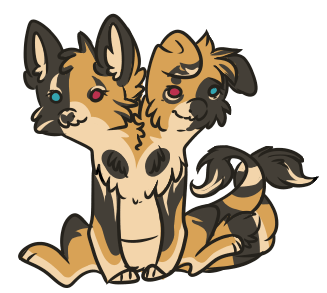I hope this isn't to long.
Popobawa
Popobawa, also Popo Bawa, is the name of an evil spirit, or shetani,[1] which is believed by residents to have first appeared on the Tanzanian island of Pemba. In 1995, it was the focus of a major outbreak of mass hysteria or panic which spread from Pemba to Unguja, the main island of the Zanzibar archipelago, and across to Dar es Salaam and other urban centres on the East African coast.
Popobawa is a shapeshifter and described as taking different forms, not just that of a bat as its name implies. It can take either human or animal form, and metamorphose from one into the other. Popobawa typically visits homesteads at night, but can also be seen in the daytime. It is sometimes associated with the presence of a pungent odor, but this is not always the case. Popobawa attacks men, women and children, and may attack all of the members of a household, before passing on to another house in the neighbourhood. Its nocturnal attacks can comprise simple physical assault and/or poltergeist-like phenomena; but most feared is sexual assault and the sodomising of adult men and women. Victims are often urged to tell others that they have been assaulted, and are threatened with repeat visits by Popobawa if they do not.
As legendary creatures go, Popobawa is of fairly recent origin.
Sightings of the popobawa only go back about forty years; Parkin states that the first reports date back to 1965 on the island of Pemba, appearing shortly after that island’s political revolution. Better-known sightings followed in 1970, and the creature resurfaced periodically in the 1980s, reaching a peak in 1995. Five years passed without a sighting, but the popobawa appeared briefly in 2000 and again in 2007.
A popular origin story of Popobawa proposes that in the 1970s an angry sheikh released a djinni to take vengeance on his neighbors. The sheik lost control of the djinni, who took to demonic ways. It has been argued that because of Zanzibar's past as an Arab-run slave market, the story of Popobawa is an articulated social memory of the horrors of slavery (Parkin 2004). Many of the legends on Zanzibar came from the colonizers and traders of the past, including Arabs, Portuguese, Hindus, Chinese, Britons, Persians and Africans.
Researcher Benjamin Radford, who investigated the Popobawa in 2007, found that the legend has its roots in Islam, the dominant religion in the area. According to Radford, “holding or reciting the Koran is said to keep the Popobawa at bay, much as the Bible is said to dispel Christian demons.”
Popobawa is a shapeshifter and described as taking different forms, not just that of a bat as its name implies. It can take either human or animal form, and metamorphose from one into the other. Popobawa typically visits homesteads at night, but can also be seen in the daytime. It is sometimes associated with the presence of a pungent odor, but this is not always the case. Popobawa attacks men, women and children, and may attack all of the members of a household, before passing on to another house in the neighbourhood. Its nocturnal attacks can comprise simple physical assault and/or poltergeist-like phenomena; but most feared is sexual assault and the sodomising of adult men and women. Victims are often urged to tell others that they have been assaulted, and are threatened with repeat visits by Popobawa if they do not.
As legendary creatures go, Popobawa is of fairly recent origin.
Sightings of the popobawa only go back about forty years; Parkin states that the first reports date back to 1965 on the island of Pemba, appearing shortly after that island’s political revolution. Better-known sightings followed in 1970, and the creature resurfaced periodically in the 1980s, reaching a peak in 1995. Five years passed without a sighting, but the popobawa appeared briefly in 2000 and again in 2007.
A popular origin story of Popobawa proposes that in the 1970s an angry sheikh released a djinni to take vengeance on his neighbors. The sheik lost control of the djinni, who took to demonic ways. It has been argued that because of Zanzibar's past as an Arab-run slave market, the story of Popobawa is an articulated social memory of the horrors of slavery (Parkin 2004). Many of the legends on Zanzibar came from the colonizers and traders of the past, including Arabs, Portuguese, Hindus, Chinese, Britons, Persians and Africans.
Researcher Benjamin Radford, who investigated the Popobawa in 2007, found that the legend has its roots in Islam, the dominant religion in the area. According to Radford, “holding or reciting the Koran is said to keep the Popobawa at bay, much as the Bible is said to dispel Christian demons.”


















